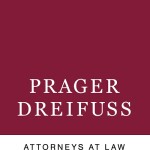Banks and other financial service providers in Switzerland are subject to strict regulation and special statutory rules. Recent developments from the highest Swiss court, the Federal Tribunal in Lausanne, together with an amendment to the Federal Civil Procedure Code, likely effective from the beginning of 2025, has changed and will further change the legal landscape of the sector.
Against the backdrop of the complex regulatory framework and with an increasing list of requirements, these financial service providers frequently involve external law firms when investigating and assessing internal shortcomings and wrongful doing by employees. This practice has given rise to some challenging questions as to when the product of such internal investigations may be used in further court proceedings, both civil and criminal.
Giving evidence after internal investigations
Currently, attorneys registered in Switzerland are permitted to refuse testimony on "professional secrets" under the main governing procedural laws. The right to refuse to testify is supplemented by rights to refuse the disclosure of documents and further prohibitions on the use of evidence.
To safeguard client interests, attorneys are not permitted to divulge confidential information that has been confided to them in their professional capacity or which has come to their knowledge in the practice of their profession. Doing so could render them liable to a prison sentence for up to three years or a fine under the Swiss Criminal Code.
According to current law, these special rights to refuse testimony are only available to independent attorneys, not to colleagues working as in-house counsel in companies. For this reason and in to profit from the client-attorney privilege, companies frequently engaged external law firms to ensure that investigation findings remained confidential and were safe from disclosure to civil claimants or prosecuting authorities, at least to some extent. This practice has given rise to difficult delineation issues in the jurisprudence of the Federal Tribunal. The controversy has been the extent to which a bank could invoke client-attorney privilege vis-à-vis the public prosecution for materials stemming from the interaction with the outside law firm but also whether in civil proceedings, the disclosure of such materials could be ordered by the court. At least for the latter, this is about to change with the new law.
The proposed amendment to the Civil Procedure Code (CPC)
In 2015, a parliamentary initiative entitled "Protection of Professional Secrecy for In-House Counsel" was launched. The main reason for the amendment to the law was to eliminate procedural disadvantages that Swiss companies suffer in international disputes. Until now, in Switzerland, members of in-house legal departments have no right to refuse to testify or not to disclose records in court proceedings. In particular, in proceedings in the US, Swiss companies have to date been obliged to disclose the correspondence of their in-house counsels because there is no provision in Switzerland corresponding to the US "legal privilege for in-house counsels". For this reason, the Federal Council included a corresponding article in its draft for the new CPC.
The new addition to the CPC, that is expected to come into law at the beginning of 2025 would read (in a free translation) as follows:
A party may refuse to cooperate and produce documents which are related to the activities of its in-house legal department if:
It is registered as a legal entity in the Swiss Commercial Register or a comparable foreign register;
The legal department is headed by a person who is in possession of a cantonal attorney's license or is qualified to perform the duties of an attorney pursuant to the rules of her/his state of origin; and
The activity in question would be considered to be typical for the occupation as an attorney.
A third party may refuse to cooperate or produce documents which are related to her/his activity for an internal legal department under the conditions of para 1.
The main point under the new law is the new right of in-house counsel to decline testifying or disclosing documents when participating in civil proceedings. Under the new para 1, in-house counsel are exempted from this general duty to cooperate. If the party is a legal entity, the exception applies to its organs, which are treated as a party in the evidentiary proceedings (art. 159 CPC). The exception applies to third parties insofar as they have an in-house legal service or are persons of such a service.
Profession-specific activity
The exception that will come into effect will be limited to the activities of the in-house legal service where the activity in question is an activity that would be considered profession-specific for an attorney. This is linked to the usual prerequisite of the protection of professional secrecy, which an external counsel can only claim for his or her profession-specific activity.
Regarding attorney-client privilege and the corresponding right of the attorney to refuse to testify, a distinction must therefore be made between activities which are typical and atypical for attorneys.
How to differentiate?
The private, political or social activities of an attorney must be distinguished from the profession-specific activities, but also from predominantly commercial activities such as asset management or activities as an officer of the company, insofar as these are not directly related to the work of an attorney.
Which facts and actions are covered by professional secrecy cannot be made schematically, but only in consideration of the concrete facts and circumstances of the individual case. It must be examined in each case if the activity of the attorneys actually occurred with regard to legal advice at the time when the facts were entrusted to them.
A prominent field of application is the area of internal investigations at financial service providers. The goal of an internal investigation is usually to establish a factual situation, to evaluate it against internal and/or legal regulations and to draw from it the necessary actions to sanction misconduct, if any, and to prevent its recurrence.
Until recently, there was a question of whether the results of the internal investigation undertaken by an external attorney/law firm had to be disclosed to a civil court or a public prosecution, or whether the company could invoke attorney-client privilege.
With the new law, in-house counsel should be able to rely on the attorney-client privilege comparable to the one of outside counsels. Employees of a company might therefore increasingly turn to the company's internal legal department when dealing with sensitive legal issues (e.g. in antitrust, tax, banking and whistleblowing).
With the amendment, in-house counsel should be able to operate in an environment where they may feel safe in the knowledge that their attorney-specific advice will be privy only to their immediate addressees within the company they work for. The introduction of a right to refuse testimony and the disclosure of documents in Switzerland can create a level playing field with companies in countries with "in-house counsel privilege".
Use in criminal proceedings
The Federal Tribunal recently had several occasions to deal with the question of whether investigation reports provided by external law firms can form part of a criminal procedure. In these cases, the Federal Tribunal concluded that in instances of so-called "mixed or global mandates", the work product by law firms for their bank clients could become problematic if there existed an overlap of attorney-specific and accessory activities. Only an individual case analysis could determine which activity is present or predominant in a particular case and could be subject to legal professional privilege.
In any event, according to recent case law of the Federal Tribunal, the mere fact that a bank or other financial service provider has handed over documents to a law firm for review or analysis is insufficient to bring them under the protective coverage of professional privilege. The Federal Tribunal clearly noted that the holder of records and objects seized for search purposes and who has lodged a sealing request has the procedural obligation to substantiate sufficiently the confidentiality interests invoked.
According to the Federal Tribunal, legal services outside of typical defence mandates, that go beyond legal advice on compliance issues, such as when compliance tasks or the internal supervision thereof (controlling/auditing) are delegated to an external law firm, are to be considered "delicate".
In an earlier decision, the Federal Tribunal decided that, particularly in the case of complex internal investigations and audits (involving interviews with various employees and evaluations of numerous documents, e-mails and telephone calls), it was not absolutely necessary for a law firm to be called in. Therefore, it was not proven that either the bank's internal legal and controlling departments or specialised external auditing, review and auditing companies could have sufficiently clarified the relevant facts. The Federal Tribunal thereby classified services within the scope of mixed mandates as accessory legal "business activities", provided they were not typical professional tasks, such as forensic, legal business planning or legal consulting.
In a recent decision on an internal investigation at a bank, the Federal Tribunal held that the existence and presentation of documents drawn up by the company in fulfilment of its own duties does not preclude an attorney’s involvement with the company's duties. The fact that the attorney only became active after the employee's breaches is not sufficient for a typical activity, nor is the fact that the attorney - as in any internal investigation - had to clarify the facts. Clarifying the facts and advising the bank on determining the legal consequences of the embezzlement by its employee are part of the attorney’s typical activity, but not the findings made independently of this, in particular to uncover any misconduct by the company itself.
Outlook
Considering this case law, differentiating legal advice provided under the protection of the attorney-client privilege and the non-protected, further tasks (such as money laundering compliance) can only be sensibly ensured by strictly separating the two processes. This is easier said than done and, in any event, a challenging task. It will be interesting to see how the courts will interpret the new privilege for in-house counsel, considering the above restrictions that apply to the work of external counsel.



